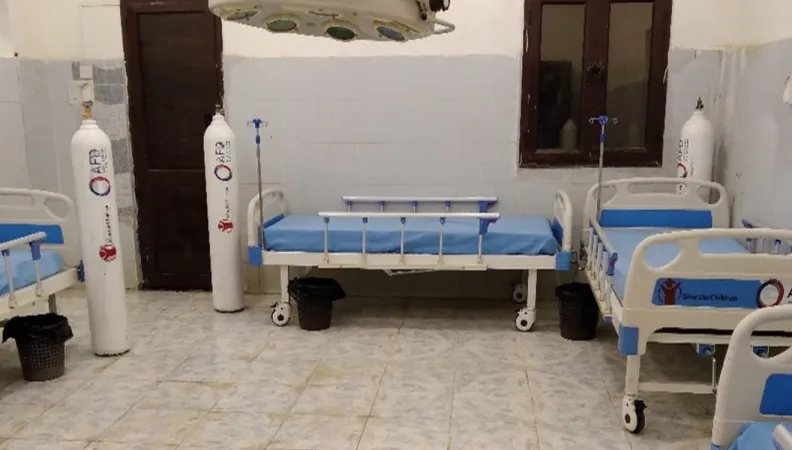Share the page
Beyond the Pandemic: the Covid response’s long-term Benefits for Sudan’s Healthcare System
Published on

Just as Sudan began to recover from years of political tumult culminating in the overthrow of leader Omar al-Bashir, the Covid pandemic dealt another blow beginning in 2020, on the already strained health services. For the next two years, AFD worked with Save the Children to bolster health facilities, particularly in Darfur, which has endured decades of war. More than a year after the project ended, the benefits are still clear, not least in expanding access to healthcare.
North Darfur is one of the poorest states in Sudan. Since 2003, the region was rocked by a civil war that continued to wreak havoc even after a peace deal was signed in 2020, causing severe humanitarian, political and economic crises. Decades of under-investment in healthcare has damaged the sector and limited access to quality healthcare services.
Read more: Strengthening Cooperation on Public Health and Covid Response in Africa
When the Covid-19 pandemic struck in 2020, health centers and hospitals lacked pretty much everything. "The intensive care unit at Elfasher University Hospital needed crucial medical equipment,” said Dr Khalid Siddeg Adam, project health manager for Save the Children. “It also lacks access to clean water and hand-washing stations, infection prevention and control, training of frontline staff and support for the prevention and treatment of malnutrition."
An emergency response
From November 2020 to January 2022, Save the Children intervened to reinforce health facilities during the Covid-19 epidemic in a project supported by AFD.
“The medical equipment provided included hospital beds to accommodate the patients,” said Dr. Mustafa Omer Idris, General Practitioner at Al-Fashir North Darfur Quarantine Center. “We also received a respirator and an oxygen concentrator, as well as personal protective equipment (PPE), such as gloves, masks and protective suits. This has made a significant difference to us in terms of the quality of care we can provide.”
The 42 healthcare workers were also trained in the clinical management of Covid-19, which in turn provided incentives to keep a closer eye on the spreading epidemic and take precautions beyond hospitals and clinics.
Further reading: The numbers are in: improved access to healthcare for 52 million people
Beyond Covid: Malnutrition and Hygiene
This project was not limited to the response to the pandemic; it also included activities around nutrition and sanitation to ensure sustainable strengthening of the region’s overall health sector.
“The nutrition department of the quarantine center provided training on newborn and baby nutrition and meals were provided to patients and workers,” said Marwa Muhammad Tayyib, Medical Manager at Al-Fashir North Darfur Quarantine Center. “In addition, we had training sessions on measuring children's arm circumference [the Mid-upper arm circumference, or MUAC measurement, which allows health workers to quickly determine if a patient is acutely malnourished]. This was a great support for the nutrition program.”
In total, 3,369 young mothers were trained in using the MUAC measurement to determine if their child is malnourished. At the same time, 45 staff members were trained in infant and young child feeding.
Save the Children supported 21 facilities to improve water purification (chlorine, testing devices and reagents), solid and medical waste management systems, as well as the provision of cleaning tools and the installation of 114 hand-washing stations in the targeted health facilities.
Long-term impact
For Dr Khalid, even one year after the end of the project, the benefits are still visible: "We still have 35 beds provided through the AFD grant, which we are using to accommodate all the patients who need intensive care,” he said. “All the equipment is still in use, and should last for at least another five years.”
Trained health staff continue to work in the facilities, and are able to treat cases of Covid-19 as well as malnutrition. "We are delighted to see that this project has made it possible to sustainably improve access to healthcare in these facilities, well beyond the emergency response to the pandemic,” said Hélène N'Garnim Ganga, AFD's Regional Director for Eastern Africa. “It is essential to provide sustainable support to populations facing these challenges, and this is the whole point of our action in Sudan."
